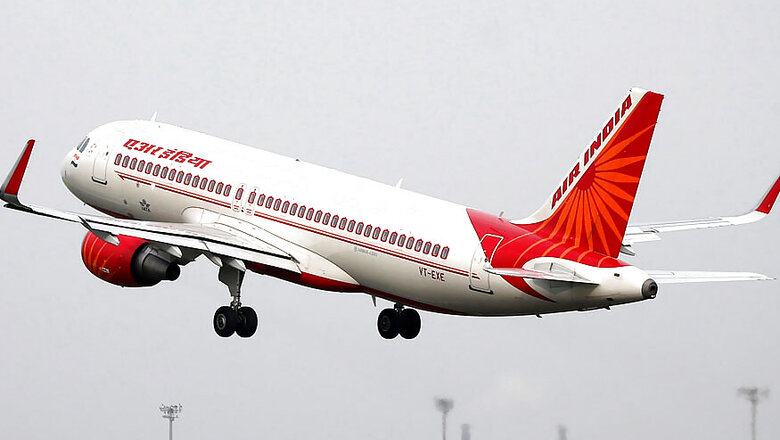
views
Sydney/Chicago: China's growth has helped power a global aviation boom over the last decade, but as the country curtails travel in the face of a new coronavirus, a slowdown could hit the industry harder than ever before.
United Airlines Holdings Inc, Air Canada, Cathay Pacific Airways Ltd and Finnair Plc, and now even Air India, are among the carriers that have already cancelled some flights to China due to the coronavirus outbreak.
British Airways has halted bookings of direct flights from London to Beijing and Shanghai until March, according to its website.
The virus has led to the deaths of more than 130 people and sickened more than 6,000, the majority of whom are in China. US officials said the White House had decided against suspending all flights, but was still considering the measure.
The virus appears to represent the biggest epidemic threat to the airline industry since the SARS outbreak, which at its peak in April 2003 had led to a 45% plunge in passenger demand in Asia, analysts said.
The global airline industry has been profitable for the last 10 years, according to the International Air Transport Association (IATA). Airlines are in a stronger financial position than in 2003, but also far more dependent on China.
"Airlines and airports that are financially strong and well-managed are able to overcome a drastic drop in air travel," said Shukor Yusof, head of Malaysia-based aviation consultancy Endau Analytics. "Weak and poorly managed airlines will suffer," he added.
The epidemic is particularly concerning to the industry as China is the world's biggest outbound international travel market and the second-largest domestic aviation market. The country accounts for about 25% of global sales for airplane manufacturers Airbus SE and Boeing Co. About 450 million more passengers fly to, from and within China per year compared with a decade ago, according to IATA.
Margins at many carriers remain narrow and economic growth has been fragile amid a US-China trade war. There are fears that the return of the 737 MAX, expected mid-year, could lead to overcapacity and push down fares. Airbus and Boeing orders have fallen from its peak levels of 2013 and 2014.
For Chinese airlines, the biggest of which are state-backed, the impact of the new coronavirus has been swift. On Wednesday, 23% of departures from Shanghai Hongqiao airport had been cancelled, according to FlightRadar24, compared with 8% at the more internationally-focused Shanghai Pudong airport.
Mike Boyd, head of US-based aviation consultancy Boyd Group International, said that he had forecast airport traffic in China to rise 8.1% in 2020, but that he now sees traffic growing at less than half that rate.
Asian jet fuel prices have dropped and refiners' profits for the product have slumped to their lowest, in more than 2-1/2 years over concerns that the coronavirus will hurt demand.
Historically, air traffic has returned to normal after health scares. In the case of SARS, it took nine months to recover, according to IATA.




















Comments
0 comment